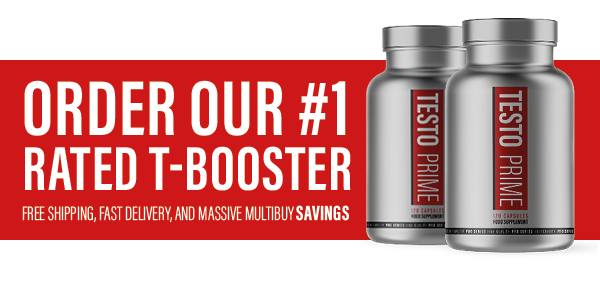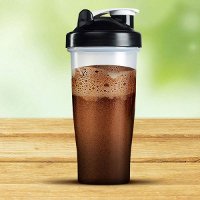In the ever-changing world of weight loss and nutrition, different diets spring up from time to time, each promising an array of amazing benefits. One such diet that has become increasingly popular in recent years is the Keto diet.
You may have heard about the numerous health benefits of this low-carb, high-fat diet that forces your body to burn fat–rather than glucose–for energy. Many studies suggest that the keto diet can promote weight loss and reduce the risk for diseases like epilepsy, Alzheimer’s disease, Polycystic Ovarian Syndrome, type 2 diabetes, and certain cancers. Other benefits include improved brain function, better heart health (possibly due to its cholesterol-lowering effect) and reduced acne symptoms.
However, it’s not all roses and unicorns. Like many others before, the keto diet has its fair share of side effects. These may include bad “keto” breath, flu-like symptoms (called keto flu), constipation, upset stomach, headaches, low blood sugar, nausea, and fatigue. Thinking of trying out keto and wondering if it might be good for you? Here are eight things to consider before diving in.
Things to consider before going keto
1) Age
Even though the keto diet is typically considered “safe” for all age groups, it is crucial to consider your age. According to WebMD, the high-fat nature of the keto diet can pose risks for heart disease and other chronic conditions in older people. Also, it’s easy to fall short of your vitamin requirement when on a keto diet, regardless of age. Including natural health supplements in your keto diet may prove beneficial. Make sure to speak with your healthcare provider or dietitian before commencing this diet plan, especially if you are over fifty.
2) Activity level
Our bodies depend on glucose derived from the breakdown of carbohydrates to fuel our daily energy demands. Even though the keto diet is designed to make fat the alternative energy source instead of carbs, this process–scientifically called ketosis–often takes time and varies among individuals. Suppose you engage in strenuous jobs, are a high-performance athlete or are involved in other demanding sports activities. In that case, it is crucial to consider this before subscribing to a keto diet.

Photo by Nataliya Vaitkevich: https://www.pexels.com/photo/woman-in-an-orange-tank-top-jogging-on-a-beach-4939447/
3) Underlying medical conditions
As promising as the keto diet looks, it is not helpful–and could even be injurious–for certain people. This includes people with underlying health conditions like insulin-dependent type 2 diabetes, pancreatitis, gall bladder disease, liver diseases, hypothyroidism or those who have had their gall bladder removed. The keto diet consists of almost 75% fat component, so people with conditions affecting the body’s ability to break down or store fat are advised to stay away from a keto diet. It is helpful to speak with your doctor or dietitian to identify other less-restrictive diets that may benefit you.
4) Pregnancy/Breastfeeding
If you are pregnant or breastfeeding, think twice before going keto. It is recommended that a pregnant woman gets at least 20% of her calories from her protein intake. On the other hand, a keto diet allows only 15% of calories to be derived from proteins, while a whopping 75% comes from fats. This restriction may be unhealthy for the growing fetuses as they require a wide range of nutrients to develop. During breastfeeding, a woman’s nutritional demands increase and a keto diet may be unable to support this demand. If you’re worried about your weight or other health issues during pregnancy or breastfeeding, it may be helpful to speak with your doctor.
5) Nutritional needs
Different stages of life require different dietary requirements. Therefore, consider this when deciding whether keto is right for you. For instance, children and teens are in the developmental stage of growth and require a nutrient-dense and balanced diet for optimum health. A diet severely restricting protein intake, like the keto diet, may be detrimental to those in this category (except it is prescribed by a doctor and closely monitored). On the other hand, older people may have difficulty getting rid of excess fat due to slower metabolism levels. Young adults also require various macro and micronutrients from food and daily health supplements.
6) Eating disorders
If you’re suffering from any type of eating disorder or have a history, you might want to speak with your healthcare provider before going keto. The restrictive nature of keto may trigger a relapse into unhealthy eating patterns. One study published in PubMed suggests that non-dietary interventions may work better for people with eating disorders like Anorexia and Bulimia.

Photo by Andres Ayrton: https://www.pexels.com/photo/woman-showing-apple-and-bitten-doughnut-6551415/
7) Lifestyle
The keto diet involves a lot of planning, meal prepping, and shopping. Going keto may mean completely overhauling your pantry and replacing regular carb and protein foods with those high in fats. Going keto may not be sustainable for those with hectic schedules, little free time, or whose jobs require frequent traveling. It’s essential to think about this when considering this diet. You may even find that switching to a balanced, low-carb alternative works better.
8) Your current food preferences
What foods do you naturally enjoy? What’s your current disposition towards fat? Are you comfortable eating a meal that consists mainly of high-fat foods? Fruits and vegetables are also considered off-limits in the keto diet. Will you be able to do without them? These are questions that you must ask yourself before going keto. After all, what’s weight loss if it’s not enjoyable and, more importantly, sustainable? Being mindful of your natural preferences may guide you and your health provider to decide whether going keto is right for you.
Make the Right Decision for Yourself
Going keto is a significant health decision; you should weigh the pros and cons before settling for it. Speaking to a trusted healthcare provider, doctor, or dietitian is crucial before making such a considerable change to your daily eating habits. A doctor can help determine whether a keto diet is the best option for your health needs. Here’s wishing you good luck if you do decide to go keto!
Read also: The Supplements for Ketogenic diet.










